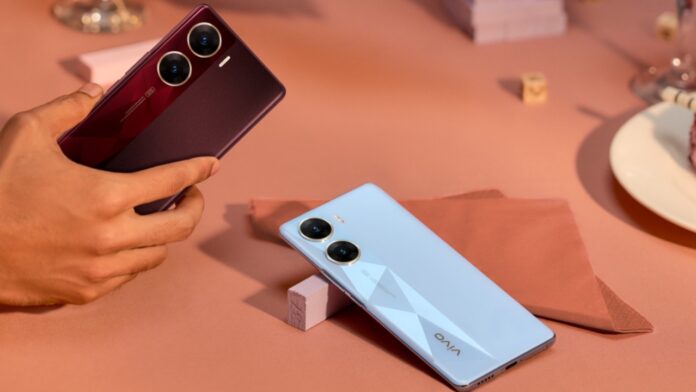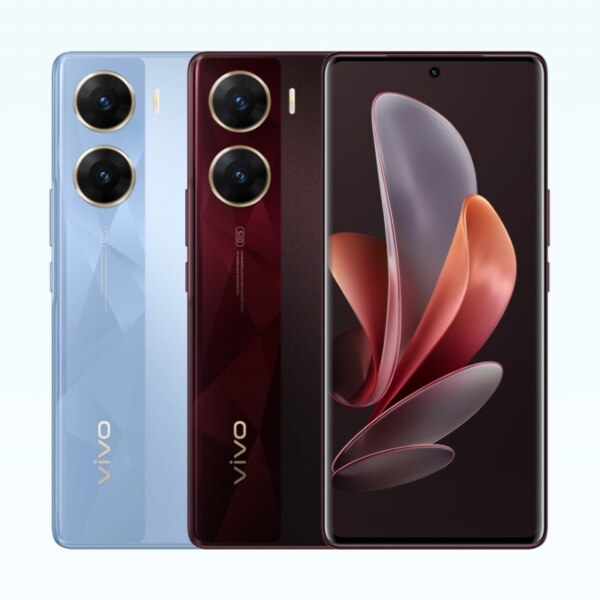Vivo has launched the new V29e smartphone in India, the first device to arrive in the country under the brand’s V29 series. It offers a 120Hz 3D curved display, a 50MP Eye AF selfie camera, and more. However, is it worth it’s price tag and powerful enough to compete with other options in the segment? Look at how the Vivo V29e 5G competitors perform and decide for yourself.
Vivo V29e : Price, Offers, Availability
Available in two colours, Artistic Red and Artistic Blue, vivo V29e is priced at Rs 26,999 for the 8GB+128GB variant and Rs 28,999 for the 8GB+256GB. Consumers can pre-book their vivo V29e starting today, August 28, 2023. The smartphone will be available for purchase starting September 7, 2023, across Flipkart, vivo India e-store, and all partner retail stores.
Consumers pre-booking the smartphone online via Flipkart and vivo e-store can avail an instant discount of Rs 2,500 using HDFC and SBI cards, along with an additional exchange bonus of Rs 2,000. At mainline stores, consumers can pre-book and avail of up to 10% cashback using ICICI, SBI, HDB Financial Services and One card along with an additional upgrade bonus of up to Rs 2,500.
Vivo V29e: Specifications
The V29e 5G from Vivo has a 6.78-inch 3D curved AMOLED Display with an FHD+ resolution, 120Hz refresh rate, 1300 nits peak brightness and an in-display optical fingerprint scanner. The handset draws power from the Snapdragon 695 processor.
It comes with 8GB RAM and up to 256GB storage. The Vivo device packs a 5000mAh battery that charges at 44W speeds. Connectivity options on the device include 5G, 4G LTE, Wi-Fi 5, Bluetooth v5.1, GPS/ A-GPS, and a USB Type-C port.
The Vivo device gets a 64MP OIS-enabled f/1.8 primary lens and an 8MP f/2.2 ultra-wide-angle sensor for cameras. The device has a 50MP eye auto-focus selfie snapper. It runs on FunTouchOS 13-based Android 13 operating system.
Vivo V29e: Top Competitors
The Vivo V29e is priced between the Rs 25,000 to Rs 30,000 price bracket. In this segment, there are many phones that offer competition to the V29e. Let’s check them out.
Motorola EDGE 40
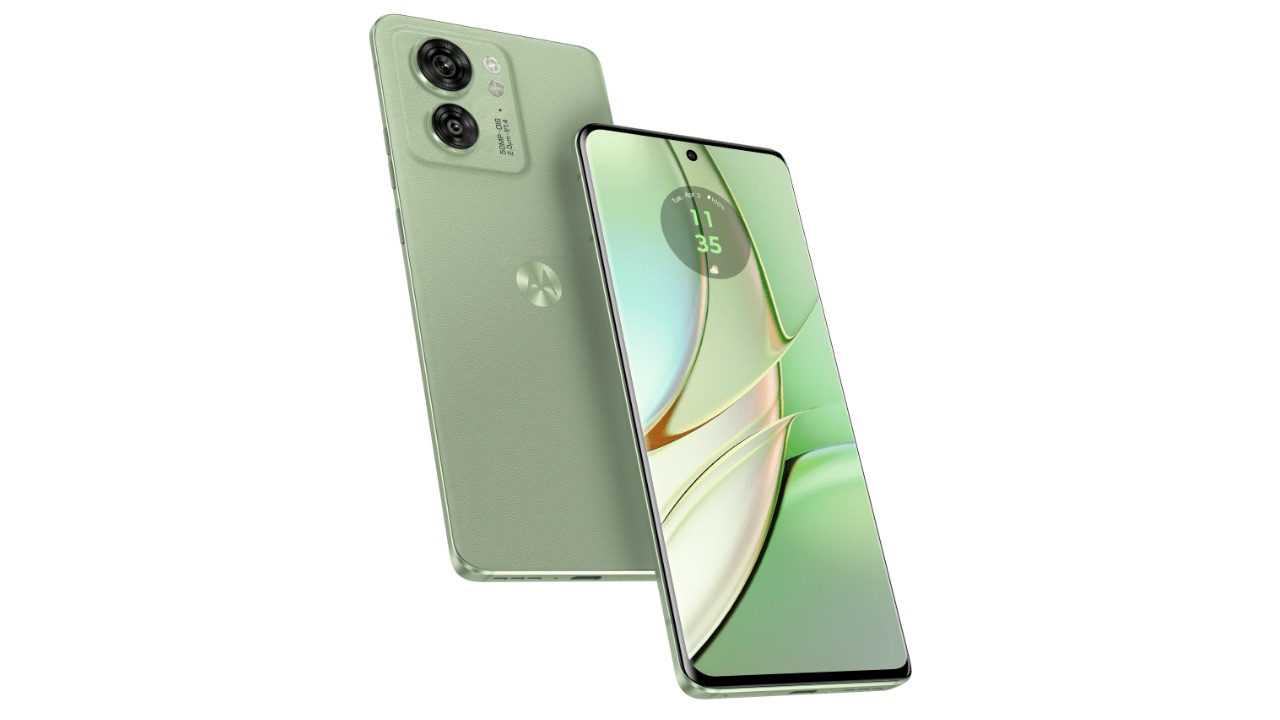
Priced at Rs 29,999, the Motorola device sports a 6.55-inch curved pOLED display with an FHD+ resolution and a center-aligned punch-hole cutout. The panel supports 8-bit colours, a 144Hz refresh rate, 360Hz touch sampling rate and 1,200 nits peak brightness. It draws power from the Dimensity 8020 chipset paired with 8GB of LPDDR4x RAM and 256GB of UFS 3.1 storage.
The device is equipped with dual stereo speakers tuned by Dolby Atmos. It is also IP68-certified water and dust-resistant. The Motorola Edge 40 features dual rear cameras, including a main 1/1.55-inch main OIS-enabled 50MP sensor paired with a 13MP ultra-wide-angle lens. There is a 32MP selfie snapper on the front. An in-display optical sensor is present for biometrics.
The smartphone is backed by a 4,400mAh battery with support for 68W wired and 15W wireless charging. Software-wise, the smartphone runs on Android 13 OS with MyUX 4.0 out of the box. It will receive major OS upgrades till Android 15, alongside 3 years of monthly security patches. For connectivity, there’s Wi-Fi 6, Bluetooth 5.2, 5G, GPS, NFC, and a USB-C port for charging.
Pros over Vivo V29e:
- Better chipset
- Stereo speakers
- IP68 rated
- Faster charging
- Wireless charging support
- NFC support
Cons over Vivo V29e:
- Smaller battery
- Higher price tag (Rs 1,000 difference)
Samsung Galaxy F54 5G
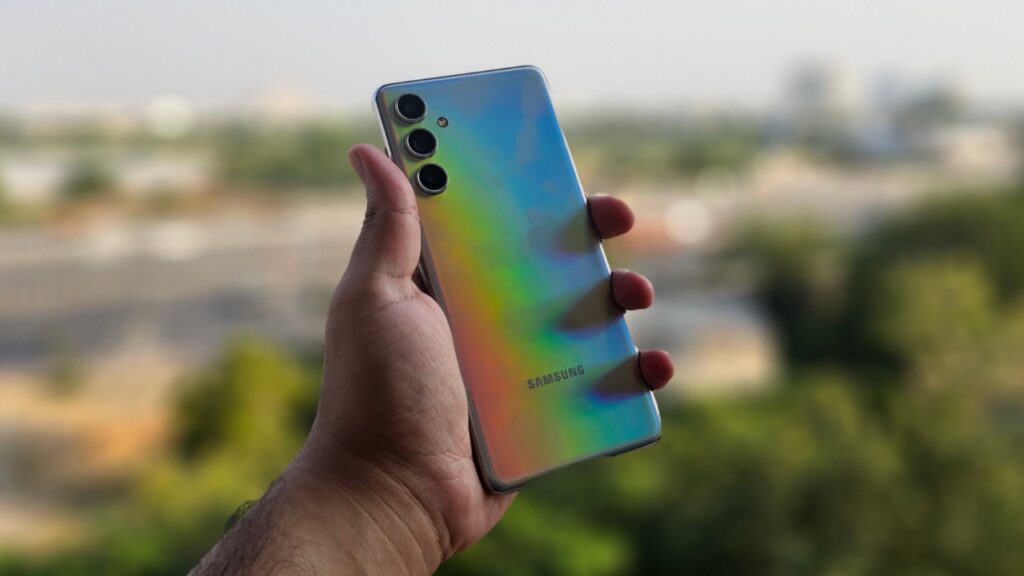
Priced at Rs 29,999, the Galaxy F54 5G sports a 6.7-inch 120Hz Super AMOLED panel with a full-HD+ resolution (1080 x 2400 pixels) and Gorilla Glass 5 protection. It is powered by the Exynos 1380 chipset, paired with 8 GB RAM and up to 256 GB storage, which is expandable via a Hybrid slot. The Samsung phone draws power from a 6,000mAh battery with 25W Fast charging support.
At the back, it gets a 108-megapixel main shooter, along with an 8-megapixel f/2.2 ultra-wide snapper and a 2-megapixel macro camera. The front-facing camera includes a 32MP sensor for selfies.
Then, you get a side-mounted fingerprint sensor for security and Dolby Atmos support with a mono speaker. Connectivity features include 5G SA / NSA, Dual 4G VoLTE, Dual-Band Wi-Fi, Bluetooth 5.3, GPS + GLONASS, USB Type-C, and NFC. It runs on OneUI 5.1 based on Android 13 out of the box.
Pros over Vivo V29e:
- Better chipset
- Bigger battery
- 4 years of major OS upgrades with no word from Vivo’s side for Vivo V29e
- Better camera sensor (on paper)
- NFC support
Cons over Vivo V29e:
- Slower charging
- Higher price tag (Rs 1,000 difference)
OnePlus Nord CE 3
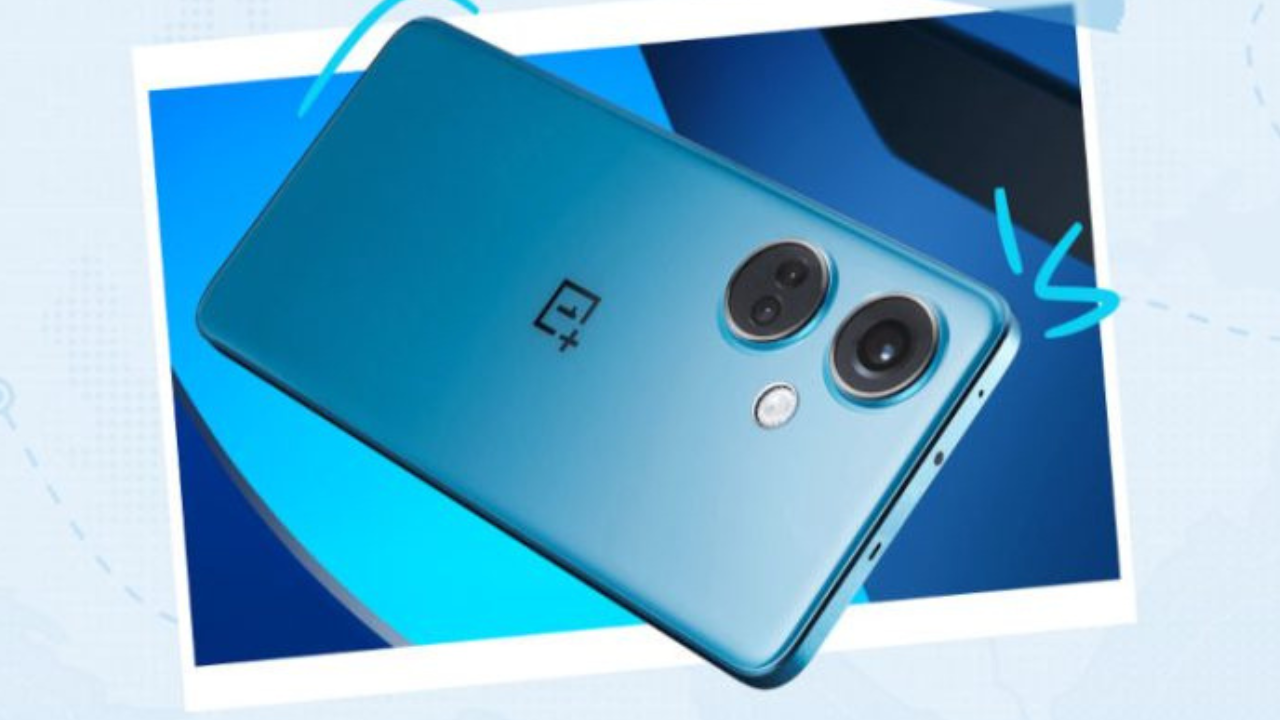
Priced at Rs 26,999, this OnePlus handset is one of the best competitors of the Vivo V29e. It features a 6.72-inch Full HD+ AMOLED display with a 120Hz Refresh Rate and 950 nits of peak brightness. The smartphone is powered by an octa-core Snapdragon 782G processor. With LPDDR4x RAM and UFS 3.1 storage, there’s support for expandable storage up to 1TB via a hybrid slot.
It will sport a triple-camera setup on the back, consisting of a 50MP IMX890 main sensor, a 2MP macro lens, and an 8MP ultra-wide camera. The front camera is a 16MP shooter. There’s an in-display fingerprint sensor for biometrics.
The handset is backed by a 5000mAh battery with 80W fast charging support. As for connectivity options, there’s Wi-Fi 6, Bluetooth 5.2, GPS, NFC and a USB-C port for charging. There’s an IR blaster and a stereo speaker setup present on the device.
Pros over Vivo V29e:
- NFC support
- Better chipset
- Stereo speakers
- More RAM in the top-end variant (12GB) at the same price as V29e’s top variant (8GB)
- IR blaster
Cons over Vivo V29e:
- Less brighter display
Lava Agni 2 5G
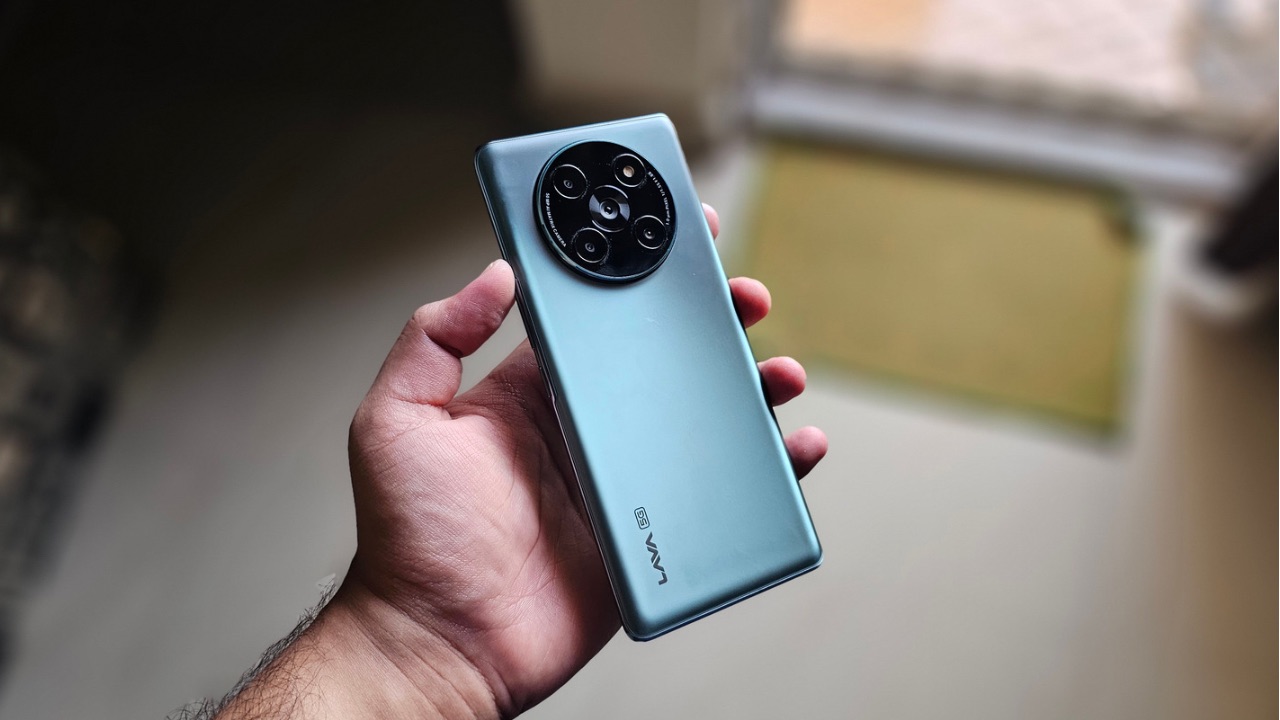
Priced at Rs 21,999, the Lava Agni 2 5G sports a 6.78-inch FHD+ screen with a 120 Hz Refresh Rate. The display comes with 1.07 billion colour depth, supports HDR, HDR 10 and HDR 10+ and Widevine L1. It can reach up to 950 nits peak brightness and has 388 PPI. It is powered by an octa-core MediaTek Dimensity 7050 SoC, coupled with 8GB of LPDDR4x RAM and 256GB of UFS 2.2 onboard storage.
For optics, the Lava Agni 2 5G packs a quad rear camera unit, headlined by a 50-megapixel primary lens with the Segment First 1.0-micron (1 um) pixel sensor, accompanied by an 8MP ultra-wide angle sensor, 2MP depth sensor and a 2MP macro sensor. For selfies, it features a 16-megapixel sensor at the front.
It includes an in-display optical fingerprint scanner for Biometrics and a USB Type-C port for connectivity. It packs a 4700mAh battery with 66W charging, which, per the company, gives you a 50% charge in less than 16 minutes. Apart from that, Agni 2 comes with the latest 3rd Gen 2900mm² Vapour Chamber cooling technology and an X-Axis Linear Motor Haptic motor.
Lava promises a clean Android 13 experience with no bloatware, no ads, no unwanted notifications, along with a promised upgrade to Android 14 and 15 and assured quarterly security updates for 3 years. Connectivity options include Wi-Fi 6, Bluetooth 5.2, USB-C port, and GPS.
Pros over Vivo V29e:
- Better chipset
- Curved display at a cheaper price
- Cheaper price tag
- Faster charging
- Quad cameras
Cons over Vivo V29e:
- Smaller battery
iQOO Neo 7
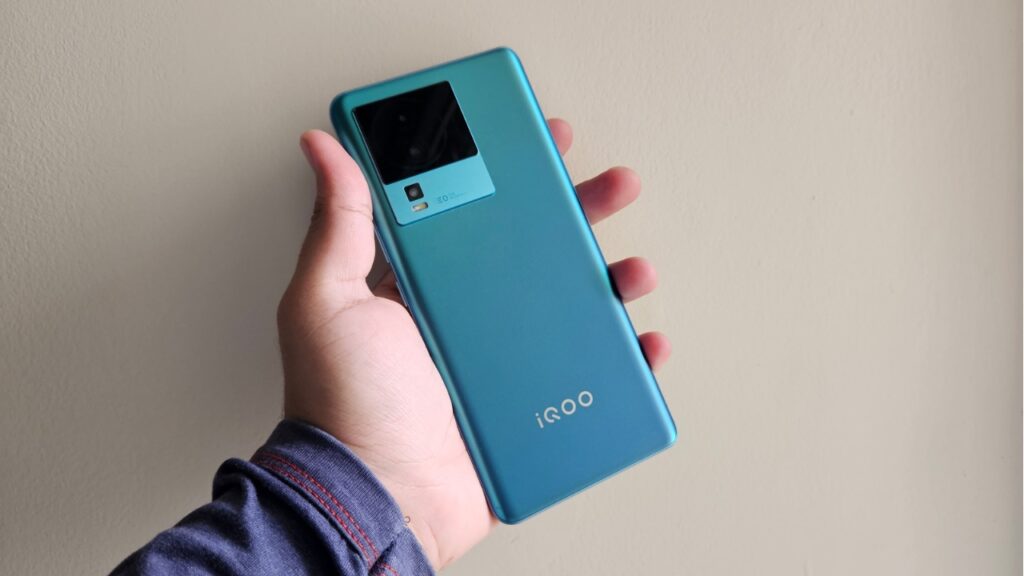
Currently selling for Rs 27,999 on Amazon and iQOO’s own website, the iQOO Neo 7 proves itself to be one of the worthy competitors to the Vivo V29e. It gets a 6.78-inch Full HD+ AMOLED display with a 2400×1080 pixels resolution, a 20:9 aspect ratio and support for a 120Hz refresh rate. The screen sports a hole-punch cutout at the top centre and a screen-to-body ratio of 93.11 per cent.
Under the hood, there is a MediaTek Dimensity 8200 SoC. The octa-core SoC has a peak clock speed of 3.1GHz and is based on a 4nm process. The Processor is paired with up to 12GB of RAM and up to 256GB storage.
On the back, there is a square-shaped block for the triple-camera setup. The phone has a 64MP main camera, a 2MP macro sensor and a 2MP depth sensor. For selfies, there is a 16MP front camera sensor.
The iQOO device comes with an in-display fingerprint scanner and AI face unlock. It also supports Bluetooth 5.3, dual-band Wi-Fi, NFC, GPS, etc. It packs a 5000mAh battery with support for 120W fast charging out of the box. Lastly, the phone runs Android 13-based FunTouchOS 13 out of the box.
Pros over Vivo V29e:
- Faster charging
- Better chipset
- NFC support
Cons over Vivo V29e:
- No ultra-wide angle sensor
- Less storage for the same price as V29e
According to what we have observed, each of the competitors of Vivo V29e mentioned above has a better chipset than it. Not only that, but these smartphones offer a much better overall value for money than the Vivo V29e.


